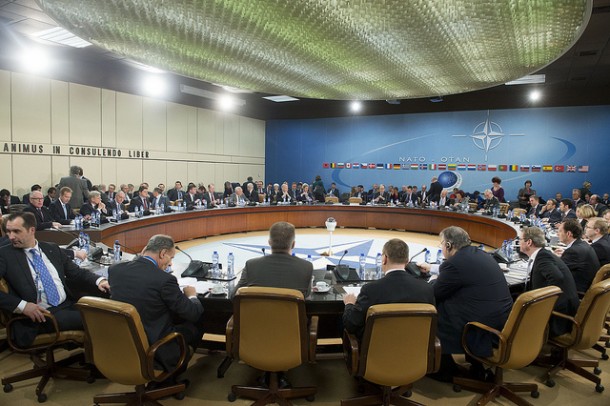For more than two decades NATO and Russia have been striving to build a diplomatic partnership but the latest events reveal that tensions among them continue to exist. Does this mean that the joint treaties failed and they have to develop a modern one which will ease their relations?
The Cold War Treaty which brought significant security in the international community after the Cold War period, prevented the arm race through ensuring cooperation and strategic alliances. The post-Cold War years did not lessen the importance of the treaty, instead the Cold War Treaty emerged as the cornerstone of security from year to year, coming to the 2014-2015; years filled with hazardous events on humanity.
Recalling these events, the Russian aggression towards Ukraine strained the relations among NATO and the Russian state. With Russia being so eager to destabilize Ukraine and confront the West, the fear of a nuclear war was prominent in the international arena. Through many bilateral discussions and agreements the critical situation was remaining in control from NATO and the great powers. What irritated the situation once again was the ”ISIS phenomena”. Lately with Russia claiming to intervene and bombing Syria with the intention of targeting ISIS, the West is concerned on how the situation will escalate and what is really behind the Russia’s aim to target ISIS.
This action provoked the attitude of NATO towards Russia. Many argue that NATO as a geopolitical project has always excluded Russia from the international community that would ensure peace and cooperation in times of conflicts, claiming that NATO’s aims were to weaken and confront Russia. The Milestones of NATO-Russia Relationship indicate that despite the efforts to achieve the common strategic objectives, their diplomatic relations has been highly influenced by many internal and external factors, such as Western powers confrontations, US attitudes and lately by the rebel forces destabilizing the security in world where Russia and NATO are holding opposite stances. The Russian government attitude towards the latest events of rebel groups, terrorism and civil wars in Syria, made U.S to urge NATO to break all the treaties with Russia and end the diplomatic relations among them. But the established treaties and common actions between NATO and Russia, within the framework of NATO-Russia Council, indicate that if all these treaties and partnerships end, an aggravated relation among the two will follow.
The Cold War Treaty which resulted successful immediately after the Cold War years, might be in need of ratifications or adjustments to fit the latest world developments. Security and peace are becoming the key words in every political discussion and summit, as we are threatened by rebel forces targeting liberal and democratic countries. If NATO and Russia force their opposite stances regarding these occurrences despite the war against terrorism, more internal tensions among these two great powers will take place; says BBC journalist J.Beale on his article ”NATO war games keep Syria and Russia in mind”. Maybe a New Cold War Treaty or either new modern treaties targeting a common strategic goal among the two powers will create a positive atmosphere in controlling the arms race and ensuring the evaporated world security. ”Standing together to seek the peace and security of a world with no weapons.”

